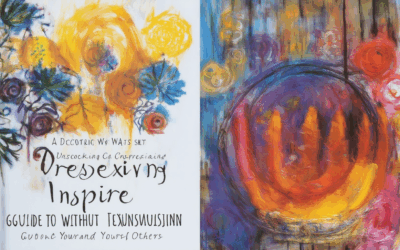Discover how personal stories can unlock motivation, serving as a powerful force to inspire and empower individuals. Whether through overcoming challenges, learning from others’ journeys, or finding solace in tales of hope, the impact of personal narratives is profound. In this article, we delve into the transformative power of inspiration, exploring how stories from real life can ignite passion, drive change, and leave a lasting legacy. From the emotional connection of short inspirational stories to the wisdom embedded in motivational tales, we examine the elements that make a story resonate deeply. Join us as we uncover the greatest sources of inspiration, whether through personal experiences or the stories of those who have overcome adversity. Together, we’ll explore how sharing our own journeys can empower others and create a ripple effect of motivation and hope.

How Can a Story Inspire You?
A story has the unique power to transport us to different worlds, evoke complex emotions, and leave us with lasting impressions. Here’s how a story can inspire you:
1. Through Relatable Characters
Stories often resonate deeply because they feature characters who share common struggles or aspirations. By identifying with these characters, you can gain perspective and motivation. For example, reading about someone overcoming adversity might remind you of your own challenges, offering hope and encouragement.
2. By Presenting Clear Messages
Great stories frequently convey meaningful lessons or moral tales. These messages can inspire you to make positive changes in your life. Whether it’s about perseverance, kindness, or pursuing your passions, a well-told story can guide your decisions and actions.
3. Through Emotional Connection
Emotional engagement is a cornerstone of inspiration. Stories that trigger strong feelings—whether happiness, nostalgia, or empathy—tend to leave a lasting impact. This emotional connection can fuel your determination and drive you to pursue goals or seek personal growth.
4. By Expanding Your Worldview
Exploring new perspectives is another way stories can inspire. Through characters from diverse backgrounds or settings, you can broaden your understanding of the world. This expanded viewpoint might help you approach problems differently or adopt a more compassionate outlook.
5. In Achieving Personal Growth
Stories often serve as a mirror, reflecting your inner struggles and triumphs. By engaging with these narratives, you can better understand yourself and identify areas for improvement. This self-awareness can motivate you to set goals and work towards personal development.
6. By Igniting Creativity
Stories are a source of creativity, whether they’re fictional or real-life accounts. They spark imagination and encourage you to think outside the box. This creative spark can lead to fresh ideas in your professional or personal life, helping you overcome creative blocks.
7. Through Hope and Resilience
Many stories are driven by themes of hope and resilience. They show characters overcoming impossible odds, which can inspire you to face your own challenges with courage. This sense of optimism can boost your confidence and remind you that progress is always possible.
8. By Providing a Sense of Belonging
Stories often highlight the importance of community and belonging. By connecting with characters who feel isolated or misunderstood, you might feel less alone in your own journey. This sense of camaraderie can be a powerful motivator.
9. In Discovering Purpose
Sometimes, stories reveal deeper truths about life’s meaning. They can inspire you to rethink your purpose and align your actions with something larger than yourself. This sense of purpose can give your life direction and fulfillment.
10. Through Exploration and Adventure
Stories that take you on journeys or explore uncharted territories can be thrilling and inspiring. They challenge you to step out of your comfort zone and embrace new experiences, pushing you to grow in unexpected ways.
Whether you’re reading a novel, watching a film, or listening to a podcast, stories have the unique ability to uplift, educate, and transform. They invite you to see the world through new eyes and find strength in shared human experiences.
Ready to discover more? Explore Patrick Mettraux’s creative insights and storytelling tips at PatrickMettraux.com . Let his words inspire your next creative project or personal journey.
How to Find Inspiration for Your Story
Inspiration for your story can come from various sources, and refining your approach can significantly enhance your creative process. Here are some effective strategies to discover inspiration:
- Explore Different Genres and Styles: Reading works from diverse genres and styles can expose you to unique storytelling techniques and perspectives. This exposure can spark fresh ideas and provide a foundation for your own narrative.
- Reflect on Personal Experiences: Journaling about your memories, emotions, and life events can reveal untapped themes and stories waiting to be told. These personal insights often resonate deeply with readers.
- Connect with Nature: Spending time outdoors, such as walking or hiking, allows you to observe the world around you. The sights, sounds, and feelings encountered during these moments can inspire creative ideas and settings for your story.
- Set Personal Goals: Establishing clear, achievable writing objectives can keep you motivated. Breaking larger goals into smaller tasks makes the journey manageable and provides a sense of progress.
- Engage with Communities: Joining online forums, local writing groups, or communities with shared interests can offer support, feedback, and new ideas. Interaction with peers can also inspire creativity and provide direction.
- Utilize Writing Prompts: Writing prompts are an excellent tool for sparking creativity. They provide specific scenarios or questions that can guide your exploration of characters, plot, and setting.
- Immerse Yourself in Audio and Visual Media: Listening to podcasts, watching films, or exploring music with rich narratives can transport you into different worlds. This immersion can help you engage with new ideas and structures.
- Experiment with Writing Techniques: Trying different writing styles, such as nonlinear narratives or multiple perspectives, can challenge your creativity and lead to unique story structures.
- Visualize Success: Mentally picturing the impact of your story can motivate and guide your efforts. This visualization can help you stay focused and confident in your creative process.
- Take Regular Breaks and Reflect: Stepping away from your work periodically allows your mind to rest and process information. Returning with a fresh perspective can enhance your ability to refine and innovate your story.
- Seek Feedback and Insights: Sharing your work with trusted friends or mentors can provide valuable feedback and open up new avenues for improvement. Their perspectives can offer fresh insights and direction.

Is It Okay to Take Inspiration From Other Stories?
Yes, it is perfectly fine and even encouraged to take inspiration from other stories. Creativity thrives on exploration and adaptation, and drawing from existing works can spark fresh ideas and innovative approaches.
Distinguishing Between Influence and Imitation
Influence and imitation are two distinct concepts. While influence means taking ideas and adapting them to fit your style, imitation involves copying someone else’s work without modification. The former is a natural part of storytelling, while the latter can lead to issues if not handled carefully.
How to Approach Borrowing Ideas Ethically
When taking inspiration, always aim to add your unique perspective to the material. Transform ideas rather than replicating them. This ensures your work remains original and avoids accusations of plagiarism.
Examples of Inspired Storytelling
- Authors often rewrite classic tales with new twists, creating fresh narratives that respect the source while offering something unique.
- Visual artists may reinterpret famous works, giving them a modern feel while staying true to the original themes.
- Music composers draw from various genres, blending sounds to create something entirely new but still recognizable as an homage.
Patrick Mettraux’s Perspective
At Patrick Mettraux, we believe that inspiration is the foundation of creativity. Our platform encourages readers to explore diverse stories and draw motivation from various sources, fostering a culture of learning and growth. Visit our website to discover more about our creative community.
Legal Considerations
Always ensure you have the rights to use borrowed material. Copyright laws protect original works, so proper attribution and permission are essential, especially for commercial use.
By embracing inspiration while maintaining originality, you can honor the creators who influenced you while contributing fresh perspectives to your field.

What is the Greatest Source of Inspiration?
Inspiration can come from a variety of sources, each offering unique perspectives and experiences. Here are some key sources that can fuel creativity and drive:
- Personal Experiences : Life itself is often the most significant source of inspiration. Reflecting on personal achievements, challenges, and growth can provide deep, meaningful material to work with.
- Nature and Environment : The beauty of the natural world, whether through landscapes, seasons, or wildlife, consistently serves as a wellspring of inspiration. Spending time outdoors can refresh the mind and spark ideas.
- Creative Communities : Engaging with fellow creators, artists, and thinkers can expose you to diverse ideas and approaches. Collaborations and discussions often lead to new insights and innovative solutions.
- Cultural Heritage : Exploring history, traditions, and cultural expressions can offer timeless inspiration. The works of historical figures and traditional practices often resonate deeply and provide a rich foundation for creation.
- Artistic Movements : Studying movements in art, literature, or music can reveal emerging trends and techniques. Understanding these can inspire fresh ways to express your own ideas.
- Mystery and Exploration : The unknown, whether through puzzles, scientific discoveries, or exploratory travels, can ignite curiosity and lead to groundbreaking innovations.
- Imaginative Mindset : Cultivating an active imagination through daydreaming, journaling, or brainstorming sessions can unlock countless creative possibilities.
- Learning and Growth : Continuous learning exposes you to new concepts, technologies, and industries, which can open doors to novel ideas and innovative solutions.
- Social Interaction : Interacting with diverse social groups can introduce you to different perspectives and lifestyles, enriching your creative palette and offering unexpected inspiration.
- Spiritual or Philosophical Insights : Exploring deeper questions about existence, purpose, and meaning can provide profound inspiration, often leading to impactful and meaningful work.
- Historical Figures and Achievements : Learning about remarkable individuals and their contributions can inspire you to pursue your own goals and aspirations.
- Technology and Innovation : Keeping abreast of advancements in science, technology, and innovation can reveal cutting-edge ideas and approaches that may inspire your own creations.
- Passion and Dedication : A strong sense of passion and commitment to your goals can be a powerful motivator, driving you to overcome challenges and achieve extraordinary results.
By drawing from these diverse sources, you can cultivate a rich and dynamic wellspring of inspiration, enabling you to create meaningful and impactful work across various domains.
The Elements of Inspiration
Inspiration is often composed of several key elements that work together to create a meaningful and impactful experience. These elements, when combined effectively, can guide individuals toward achieving their goals and fostering creativity. Below are the primary components of inspiration:
- Communication: Effective communication is the foundation of inspiration. It involves conveying ideas clearly and persuasively, whether through words, actions, or visuals. Without clear communication, it’s challenging to inspire others to take action or adopt a new perspective.
- Relatability: Inspiration thrives on connection. People are more likely to be motivated when they can relate to the experiences, struggles, or successes shared by others. Relatability helps bridge the gap between the speaker and the audience, making the message more resonant.
- Value Proposition: A strong value proposition identifies the unique benefits offered by an idea, product, or service. It answers the “why” for the audience, highlighting what makes the offering worth their attention and engagement.
- Road Map: Providing a clear and achievable roadmap guides individuals through the process of achieving their goals. It offers structure and direction, making it easier for people to visualize and pursue their aspirations.
These elements, when harmonized, create a powerful force for motivation and transformation. By focusing on communication, relatability, value, and direction, we can inspire others to embrace change and pursue their passions with confidence and purpose.

Where Do People Get Inspiration From?
Inspiration can come from various sources, big and small. Here are some common places where people find it:
- Observing Nature: Take a walk outside or spend time in a park. Notice the changing seasons, the sounds of birds, or the beauty of a sunset. Nature often provides a sense of calm and creativity.
- Exploring Art and Culture: Visit museums, watch live performances, or listen to music. Art and culture can inspire through their unique perspectives and stories.
- Learning Something New: Engaging in new activities or hobbies can spark curiosity and motivation. Whether it’s cooking a new recipe or mastering a skill, discovery is key.
- Reading Books or Articles: Immerse yourself in stories or articles that resonate with you. Great literature and journalism often highlight innovative ideas and human achievements.
- Reflecting on Personal Experiences: Think back to moments that made you happy or proud. Remembering these can reignite feelings of accomplishment and drive.
- Helping Others: Acts of kindness and service can be deeply rewarding. Witnessing the impact of your efforts may inspire you to continue making a difference.
- Traveling to New Places: Exploring unfamiliar environments can open your eyes to different ways of living and thinking, often leading to fresh ideas.
- Learning from Failure: Every setback is an opportunity to grow. Reflecting on past mistakes can teach valuable lessons and motivate future success.
- Watching Children Learn: The curiosity and enthusiasm of children can be contagious. Their approach to problem-solving and exploration is often inspiring.
- Simplifying Daily Tasks: Sometimes, the smallest moments of peace or joy can be sources of inspiration. Try mindfulness or meditation to notice these fleeting gems.
Additionally, platforms like Patrick Mettraux offer creative insights and storytelling that can fuel your imagination. Explore their blog for tips on creativity and inspiration.
Remember, inspiration is everywhere. Keep your eyes open and your heart open, and you’ll find it in the most unexpected places.





0 Comments